Gone Too Soon: Steve Cochran
The following post is my entry in the Gone Too Soon Blogathon presented by Comet Over Hollywood. Take some time to read these great entries! You only owe it to yourself.
 With his swarthy good looks and tough-guy demeanor, Steve Cochran was a natural for the hoods and cutthroats he so often portrayed in the movies, and he was seen to good advantage in several entries from the film noir era, including The Chase (1946), White Heat (1949), The Damned Don’t Cry (1950), and Private Hell 36 (1954). Despite a career that included more than 40 films during a span of three decades, however, Cochran frequently found himself in the press more often for his off-screen exploits than his cinematic performances – from his numerous run-ins with the law and his highly publicized affairs with such notables as Mae West, Barbara Payton, Merle Oberon, and Mamie Van Doren, to his bizarre death in the middle of the Pacific, Cochran led a life that surpassed even the most creative Hollywood script – and ended much too soon.
With his swarthy good looks and tough-guy demeanor, Steve Cochran was a natural for the hoods and cutthroats he so often portrayed in the movies, and he was seen to good advantage in several entries from the film noir era, including The Chase (1946), White Heat (1949), The Damned Don’t Cry (1950), and Private Hell 36 (1954). Despite a career that included more than 40 films during a span of three decades, however, Cochran frequently found himself in the press more often for his off-screen exploits than his cinematic performances – from his numerous run-ins with the law and his highly publicized affairs with such notables as Mae West, Barbara Payton, Merle Oberon, and Mamie Van Doren, to his bizarre death in the middle of the Pacific, Cochran led a life that surpassed even the most creative Hollywood script – and ended much too soon.
Named for his lumberman father, Robert Alexander Cochran was born May 25, 1917, in Eureka, California, the eldest of two children. The family moved to Wyoming when Cochran was a child, and during his high school years, after being kicked off the school basketball team for missing training practice, Cochran turned his sights toward dramatics. He never looked back.
After a year at Wyoming University, Cochran quit to join the Federal Theatre Project in Detroit, but although he later decided to try his luck in Hollywood, he couldn’t even manage to get a screen test. Undaunted, he stayed in California, gaining more experience through little theater groups; while appearing in one production, There’s Always Juliet, he adopted the name of one of the characters, and Steve Cochran was born.
Returning to Laramie, Cochran produced a number of little theater plays, then traveled extensively during the next several years, performing in Shakespeare festivals and road shows from California to Maine. Between acting jobs, he made ends meet by performing various jobs, including firing the steam plant at a sand pit near Del Monte, California, and working as a private policeman at Macy’s department store in New York.
After nearly seven years of futile attempts to make it into the “big time,” Cochran finally got his break in the mid-1940s, when the Theatre Guild in New York cast him in the lad in Without Love. Soon after, he caught the attention of producer Sam Goldwyn, who took an option on his services. Cochran toured Columbus, Ohio, Milwaukee, and Chicago in the play before hitting Los Angeles, where Goldwyn exercised the option and cast Cochran in a popular Danny Kaye vehicle, The Wonder Man (1945). He also appeared that year in two entries in the Boston Blackie series, Boston Blackie’s Booked on Suspicion and Boston Blackie’s Rendezvous, in which he starred as a crazed killer who escapes from a lunatic asylum.
 In terms of box-office receipts, Cochran hit the jackpot in 1946, with featured roles in a pair of money-makers, The Kid from Brooklyn, another Danny Kaye starrer, and The Best Years of Our Lives, which won a slew of Academy Awards, including Best Picture. Also that year, Cochran leapt into the domain of film noir, portraying a suave racketeer in The Chase. Here, Cochran played Eddie Roman, who lives in an opulent Miami mansion with his unhappy wife, Lorna (Michele Morgan), and his inscrutable sidekick, Gino (Peter Lorre).
In terms of box-office receipts, Cochran hit the jackpot in 1946, with featured roles in a pair of money-makers, The Kid from Brooklyn, another Danny Kaye starrer, and The Best Years of Our Lives, which won a slew of Academy Awards, including Best Picture. Also that year, Cochran leapt into the domain of film noir, portraying a suave racketeer in The Chase. Here, Cochran played Eddie Roman, who lives in an opulent Miami mansion with his unhappy wife, Lorna (Michele Morgan), and his inscrutable sidekick, Gino (Peter Lorre).
Sometimes confusing and often bizarre, The Chase was highlighted by the performance turned in by Cochran; his character’s persona is strikingly revealed in my favorite scene, where Roman is seen receiving a manicure in his home. When the manicurist accidentally nicks his finger, she quickly apologizes: “Oh, I’m sorry, Mr. Roman – you moved,” she says. “But you didn’t,” Roman rejoins, slapping her from her stool onto the floor, “quick enough.” The woman leaves the room crying, leaving Roman to comment, “Stupid dame.” Cochran’s picture-stealing performance was a highlight of the film.
In the next two years, Cochran made only two films, Copacabana (1947), a vehicle for Groucho Marx and Carmen Miranda, and A Song Is Born (1948), a hit musical starring Danny Kaye. Instead, he took time off from his budding screen career to appear on Broadway with the legendary Mae West in the revival of Diamond Lil. Upon his return to California, he signed with Warner Brothers and was cast in his second film noir, White Heat (1949). In this top-notch feature, Cochran played Big Ed Somers, a rebellious, outspoken member of a gang headed by the psychologically disturbed Cody Jarrett (James Cagney). Despite the memorable performance provided by Cagney, Cochran was mentioned by several reviewers, including Lloyd L. Sloan of the Hollywood Citizen-News, who fittingly termed him “excellent.”
The following year, Cochran continued racking up the bad-guy roles with starring parts in Dallas, an above-average western starring Gary Cooper; Highway 301, a gritty cops-and-robbers saga, and Storm Warning, co-starring Doris Day and Ginger Rogers. In this gripping feature (which also starred president-to-be Ronald Reagan), Cochran played a bigoted family man who is a member of the Ku Klux Klan. He later called the role his favorite of his career.
“To me, one source of satisfaction in playing the role of Hank in Storm Warning was the feeling that I might be making a small contribution toward racial tolerance,” he told the Saturday Evening Post. “As a youngster in Wyoming, I had seen the fiery crosses of the Ku Klux Klan burning near my home and even then I sensed their frightening menace. As Hank in this picture, I had a chance to show how basically shabby such demonstrations are.”
Cochran’s final film of 1950 was his third film noir, The Damned Don’t Cry, with Joan Crawford, David Brian, and Kent Taylor. Here, Cochran was again cast as a gangster, this time playing a renegade syndicate member who tries to take over the entire organization from his ruthless boss. This well-made and often gripping feature earned mixed reviews, but there was no disagreement over Cochran’s performance – the critic for Trade Show said the actor “has a field day in a colorful spot,” Film Daily’s reviewer labeled him “vivid and compelling,” and in the Los Angeles’Times, Dorothy Manners wrote: “Next to [Joan Crawford], Steve Cochran makes the best impression as the diamond-in-the-rough who dares to break with the syndicate – and winds up just in the rough.” (This film is one of my favorite noirs – and Steve Cochran is one of the many reasons why.)
 The year 1951 would be the busiest of Cochran’s career – the best of his five pictures that year were Jim Thorpe – All American, a biopic about the Native American Olympic star, and Inside the Walls of Folsom Prison, a prison film set in the 1920s, which starred Cochran as a tough inmate who leads an escape. Off-screen, though, the actor became embroiled in the first of many brushes with the law when, on New Year’s Day 1952, he was involved in an altercation with Lenwood “Buddy” Wright, an aircraft worker and former professional boxer. According to Wright’s version of the incident, he was a guest at a party given at Cochran’s house, and after leaving, discovered that he had left behind an overcoat. When he returned, Wright charged, Cochran met him at the door and “brutally and violently” struck him over the head with a baseball bat. But Cochran claimed that Wright had come to the house “as an intruder looking for a fight and had his fists raised,” forcing the actor to use the bat in self-defense. Cochran wasn’t charged, but three months later, Wright filed a $405,000 suit for assault and battery damages against the actor, claiming that he had suffered serious head injuries and was forced to take a sick leave from his aircraft job. Following a two-week trial in June 1953, a jury awarded Wright $16,000 in general and punitive damages. (The award was reduced to $7,500 the following month by a Superior Court judge.) Cochran was back in the news in October 1953 when he was arrested for reckless driving and evading arrest after an automobile chase with police. Newspaper accounts reported that Cochran ran a red light while driving his new $6,000 German sports car, but when police flagged him over, the actor sped off, leading officers on a chase for five miles. The pursuit came to an end only after the cops fired a warning shot. “You are a poor sport,” Cochran reportedly told police after the incident. “You wouldn’t have caught me if you hadn’t shot.” He later pleaded guilty and paid a minor fine, but insisted that the chase was just a “lark,” adding, “I just wanted to show my friends how my new sports car would corner.”
The year 1951 would be the busiest of Cochran’s career – the best of his five pictures that year were Jim Thorpe – All American, a biopic about the Native American Olympic star, and Inside the Walls of Folsom Prison, a prison film set in the 1920s, which starred Cochran as a tough inmate who leads an escape. Off-screen, though, the actor became embroiled in the first of many brushes with the law when, on New Year’s Day 1952, he was involved in an altercation with Lenwood “Buddy” Wright, an aircraft worker and former professional boxer. According to Wright’s version of the incident, he was a guest at a party given at Cochran’s house, and after leaving, discovered that he had left behind an overcoat. When he returned, Wright charged, Cochran met him at the door and “brutally and violently” struck him over the head with a baseball bat. But Cochran claimed that Wright had come to the house “as an intruder looking for a fight and had his fists raised,” forcing the actor to use the bat in self-defense. Cochran wasn’t charged, but three months later, Wright filed a $405,000 suit for assault and battery damages against the actor, claiming that he had suffered serious head injuries and was forced to take a sick leave from his aircraft job. Following a two-week trial in June 1953, a jury awarded Wright $16,000 in general and punitive damages. (The award was reduced to $7,500 the following month by a Superior Court judge.) Cochran was back in the news in October 1953 when he was arrested for reckless driving and evading arrest after an automobile chase with police. Newspaper accounts reported that Cochran ran a red light while driving his new $6,000 German sports car, but when police flagged him over, the actor sped off, leading officers on a chase for five miles. The pursuit came to an end only after the cops fired a warning shot. “You are a poor sport,” Cochran reportedly told police after the incident. “You wouldn’t have caught me if you hadn’t shot.” He later pleaded guilty and paid a minor fine, but insisted that the chase was just a “lark,” adding, “I just wanted to show my friends how my new sports car would corner.”
During the next two years, Cochran played starring roles in six fairly forgettable films, and was featured in the dreadful musical The Desert Song (1953), which was his final film under his Warner Brothers contract. Meanwhile, in 1953, Cochran started his own production company, Robert Alexander Productions, and enthsiastically discussed his new venture in the press. “I left Warner Bros. recently because I wasn’t growing,” he said. “I had some pleasant assignments there . . . but the last few parts were so bad I had to get out. This new producing-acting venture is my most exciting experience yet.”
In 1954, the actor starred with Ida Lupino and her then-husband Howard Duff in the tense film noir, Private Hell 36, produced by Lupino’s production company, Filmakers. In this feature, Cochran played Cal Bruner, a police detective who, along with his partner (Howard Duff), finds a steel box filled with cash following a car crash. Rather than turning over the entire amount, Bruner talks his partner into splitting a portion of the money, which he craves, in order to provide material possessions to his nightclub singer girlfriend, Lili (Lupino). The film is seldom mentioned in film noir discussions, but it’s well worth a look – and, again, Cochran is outstanding.
After portraying a seedy circus advance man in Carnival Story in 1954, Cochran was off screen for a year, returning instead to the stage, where he starred as Starbuck in a production of The Rainmaker. He was back to feature films in 1956 in Slander, a fast-paced drama that starred the actor as the ruthless publisher of a tabloid magazine, and Come Next Spring, the first film produced by Cochran’s production company. In this feature, Cochran starred opposite Ann Sheridan as a farmer who redeems himself for his past drinking and wild ways. The feature was well-received by critics and audiences alike – a letter to Filmland magazine by one fan praised the actor’s favorable characterization: “I hope Steve Cochran succeeded in Come Next Spring in getting away from being typed as a criminal-villain-tough guy. Let’s see Steve in more roles like this real soon.” During this time, Cochran also began appearing on various television programs, including Zane Grey Theater and The Naked City.
Between acting assignments, Cochran was busy making headlines for his off-screen exploits. In October 1956, he earned the dubious distinction of receiving the first flying ticket issued by a police helicopter. The adventure-loving actor – who had been flying for about two years, and had approximately 100 hours of flying time behind him – was cited by officers when he dipped over his mountaintop home in Studio City and rocked his wings. Claiming that he did not see the police helicopter trailing behind him, Cochran initially pleaded not guilty, but he later reversed his plea and was fined $500, grounded for 90 days, and given a suspended sentence of 30 days in jail.
The actor was in only one film in 1957, a well-crafted thriller entitled The Weapon, about a boy who accidentally shoots a playmate with a gun used to kill an Army officer 10 years before. He spent much of the year on a five-month, picture-making junket to Europe, scouting locations for his upcoming film project, Il Grido. The picture, in which Cochran co-starred with Alida Valli and Betsy Blair, was filmed and released later that year in Italy, but wasn’t released in the United States until1962. Meanwhile, Cochran starred as a Confederate officer in Quantrill’s Raiders (1958), a fairly entertaining low-budget western, and as an underworld kingpin in I, Mobster (1958), in which he suffered his 25th onscreen death. Shortly after the release of the latter film, Cochran discussed his success in playing villains on the silver screen.

A notorious womanizer, Cochran reportely had a steamy affair with his "Beat Generation" co-star, Mamie Van Doren.
“I don’t act like a hood [in my films],” Cochran told Hollywood columnist Joe Hyams. “I’m basically a decent person and I let this come through in my portrayals. After all, a guy has to make a living some way, even if he’s a gangster. The big secret in playing a gangster in movies is to really believe that the character you are playing is doing no wrong.” Cochran followed I, Mobster with a rare heroic role in the first-rate suspenser, The Big Operator (1959), as a man who goes up against a tyrannical labor boss, chillingly portrayed by Mickey Rooney. Interestingly, Cochran’s next film, The Beat Generation (1959), featured the same director and producer, and many of the same actors as The Big Operator, but the result was not nearly as effective. In The Beat Generation, Cochran’s final film noir, he stars as Dave Cullman, a woman-hating cop searching for a rapist known as “The Aspirin Kid.” Clearly the weakest of Cochran’s five noir features, The Beat Generation contains a few good moments, but they are overshadowed by the film’s “hep” dialogue and quirky characters, including a woman who presents a poetry reading while smoking a cigarette and holding a large, white rat. (In one of the film’s unintentionally funny scenes, Culloran announces to a trio of party-going beatniks that he is a policeman. One of the women sprays him with a stream of water from the bar and gleefully rejoins, “‘I’m a fireman!”) The feature was a disaster at the box office and was slammed by critics, including the reviewer for the New York Times, who labeled it “downright embarrassing” and declared, “The Beat Generation is enough to make any member or non-member walk outside the theater and butt his head against the wall. This excruciating and tasteless little entertainment package arrived at neighborhood showcases yesterday, courtesy of Metro-Goldwyn-Mayer – if courtesy is the right word.” (Harsh, yes – but not too far from the mark.)
In 1960, Cochran had a brush with disaster when his yacht crashed into a Los Angeles Harbor breakwater in heavy fog. The actor and the boat’s other occupants – two young woman, two dogs, and a monkey (yes, a monkey) – were forced to dive out of the boat. All escaped without injury. It was the second sailing mishap of Cochran’s life. Several years earlier, he had spent a grim night in the Catalina Channel, bailing out his 35-foot ketch until a U.S. Coast Guard patrol boat towed the actor in. Tragically, this would not be the actor’s last misfortune on the water.
Around this time, after two brief marriages earlier in his career, Cochran gave the institution another try in 1961, marrying Danish actress Jonna Jensen in Las Vegas on March 18th. But the third time would not be the charm. The two separated in November, and the actress filed for divorce on January 5, 1962. Meanwhile, Cochran was seen in such television series as The Untouchables and The Twilight Zone, and in big-screen features including The Deadly Companions (1961), notable primarily as the directorial debut of famed director Sam Peckinpah, and Of Love and Desire, (1963), a poorly scripted film that marked Merle Oberon’s return to pictures after a seven-year absence.
In August 1964, while shooting his next film, Mozambique, in South Africa, Cochran once again found himself the topic of unflattering press coverage when he was arrested on a civil court order brought by a local jockey who accused him of adultery. The jockey, Arthur Cecil Miller, sought $5,000 in damages, claiming that Cochran had been having an affair with his wife, who had a small role in the film. The following month, a high court judge cleared Cochran of all charges and threw out the jockey’s claim. Cochran angrily stressed his innocence to Los Angeles Herald Examiner columnist Harrison Carroll.
“It didn’t happen and the fellow didn’t have a shred of evidence,” the actor said. “He submitted what he said was a love letter [to his wife] from me. You know what it said? ‘To Heather, nice to have worked with you Aloha, Steve.’ I gave autographs like that to a number of kids who worked in the film.”
Having successfully dodged yet another scandal, Cochran was back in the newspapers just three months later when a 23-year-old singer, displaying a bruised and swollen face, told police that Cochran had beaten and gagged her during a quarrel at his Hollywood Hills home. The singer, Ronie Rae, told authorities that Cochran invited her to his house to audition for a part in a new film he was producing, Captain O’Flynn. After she accidentally spilled a drink on Cochran’s floor, Rae claimed, a quarrel ensued, during which Cochran tied her hands and feet with neckties, beat her, and gagged her with a towel. She was able to eventually free herself and arrange for her father and grandmother to pick her up, Rae said.
Cochran’s account of the incident was vastly different. He agreed that Rae was at his home for an audition, and he also admitted that he had bound her with neckties, but he said that it was for her own protection because she has “hurtling herself about.” The violence was initiated, Cochran stated, after Rae had consumed her second drink and took exception to the fact that the actor was ignoring a tape of her songs.
“I didn’t want to embarrass her by saying, ‘Horrible. Awful. Can’t stand it. Go home!”‘ he explained. So instead, he went upstairs, the actor said, and Rae threw herself to the floor, smashed furniture, and butted her head against the fireplace. “She appeared to be on some kind of pills,” Cochran said, adding that when her father arrived to pick Rae up, his first words were, “She’s been on those pills again.” Just five days after the news broke, Cochran was cleared of all charges. ln fact, officials declared that the actor may have done [Rae] a great service, by tying her up.”
The uproar involving Rae was a tragic omen of things to come. The film for which the actress was auditioning, Captain O’Flynn, was to be based on the real-life adventures of Lee Quinn, a ship captain who, in 1963, began a voyage in the Pacific aboard his ketch with an all-girl crew. Cochran was intrigued with the idea of bringing Quinn’s story to the big screen, and in 1965 the actor decided to enact a first-hand tryout of the adventure. Out of a pool of nearly 200 female applicants, Cochran hred three Mexican women, Eva Montero Castellano, 25, a seamstress; Eugenia Bautista Zacarias, 19, a laundress; and 14-year-old Lorenza de la Rosa, to accompany him on an eight-day sailing trip from Acapulco down the Pacific Coast to Costa Rica, where the picture was to be filmed on location.
Cochran and his “crew” set sail on June 5, 1965. It would be his last adventure. Three weeks later, on June 26, 1965, the actor’s 40-foot schooner was towed into the Guatemala port of Champerico. On board were the three women – and the dead body of Steve Cochran. Officials later determined that the 49-year-old actor had fallen ill from a paralyzing lung ailment during the voyage and died 10 days after departing from Acapulco. For nearly two weeks, the women drifted helplessly in the schooner before being rescued in Guatemala.
The Hollywood community was stunned by Cochran’s strange and sudden death. But his estranged wife, Jonna Jensen, wasted no time in laying claim to his money. Just four days after the actor’s body was discovered, Jensen filed a petition in Los Angeles Superior Court for letters of administration over his estate, estimated to be worth $150,000. The following day, the actor’s 79-year-old mother, Rose Cochran, filed a similar petition of her own, pointing out the fact that her son’s widow had filed for divorce. She also cited a post-nuptial agreement by her son and his wife which stipulated that all of their property was to remain separate. The agreement further stated that Jensen would receive one-third of his estate – only if there was no action pending for divorce for separate maintenance. In July, a Superior Court judge appointed both Jensen and Rose Cochran as temporary administrators of the estate, but three months later, Jensen was named sole administrator. It was a seedy footnote to an already-gruesome set of circumstances. (After his death, Cochran’s last two films were released – Mozambique [1966], the picture he made in South Africa, and Tell Me in the Sunlight [1967], which marked the actor’s sole big-screen directorial credit.)
 Although Steve Cochran was typed as the heavy throughout his career, he nonetheless demonstrated in numerous movies that he had a genuine talent, and he will be remembered for his unforgettable portrayals in films such as White Heat, Storm Warning, and Inside the Walls of Folsom Prison. Despite his brushes with the law in his personal life, Cochran seemed to be more of a reckless adventurer than any kind of real menace, and while his acting career appeared to be waning at the time of his death, he was just starting in a new direction as a director and producer. Because of these realities, his premature end is that much more tragic.
Although Steve Cochran was typed as the heavy throughout his career, he nonetheless demonstrated in numerous movies that he had a genuine talent, and he will be remembered for his unforgettable portrayals in films such as White Heat, Storm Warning, and Inside the Walls of Folsom Prison. Despite his brushes with the law in his personal life, Cochran seemed to be more of a reckless adventurer than any kind of real menace, and while his acting career appeared to be waning at the time of his death, he was just starting in a new direction as a director and producer. Because of these realities, his premature end is that much more tragic.
This article is a version of the chapter on Steve Cochran that appears in my book, Bad Boys: The Actors of Film Noir.










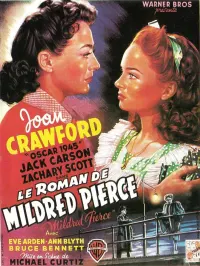




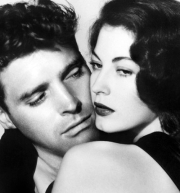
















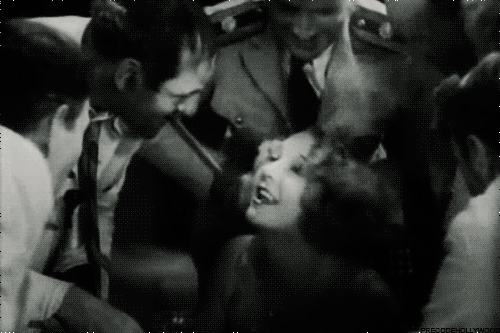


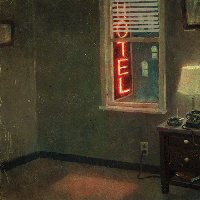
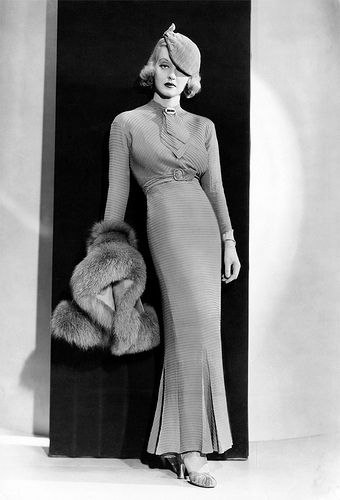



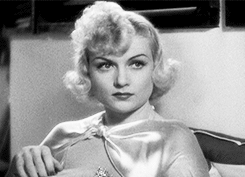
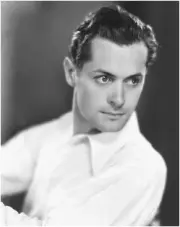
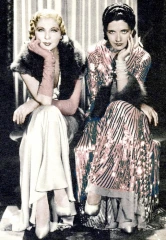

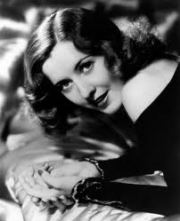



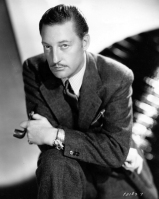




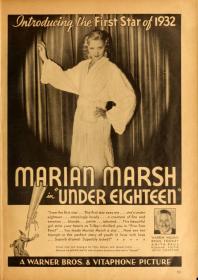
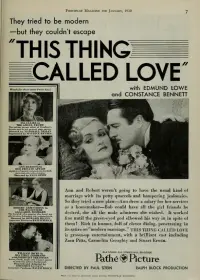

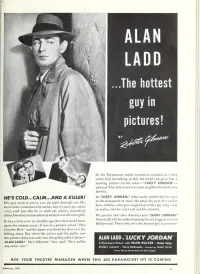
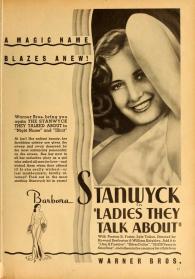

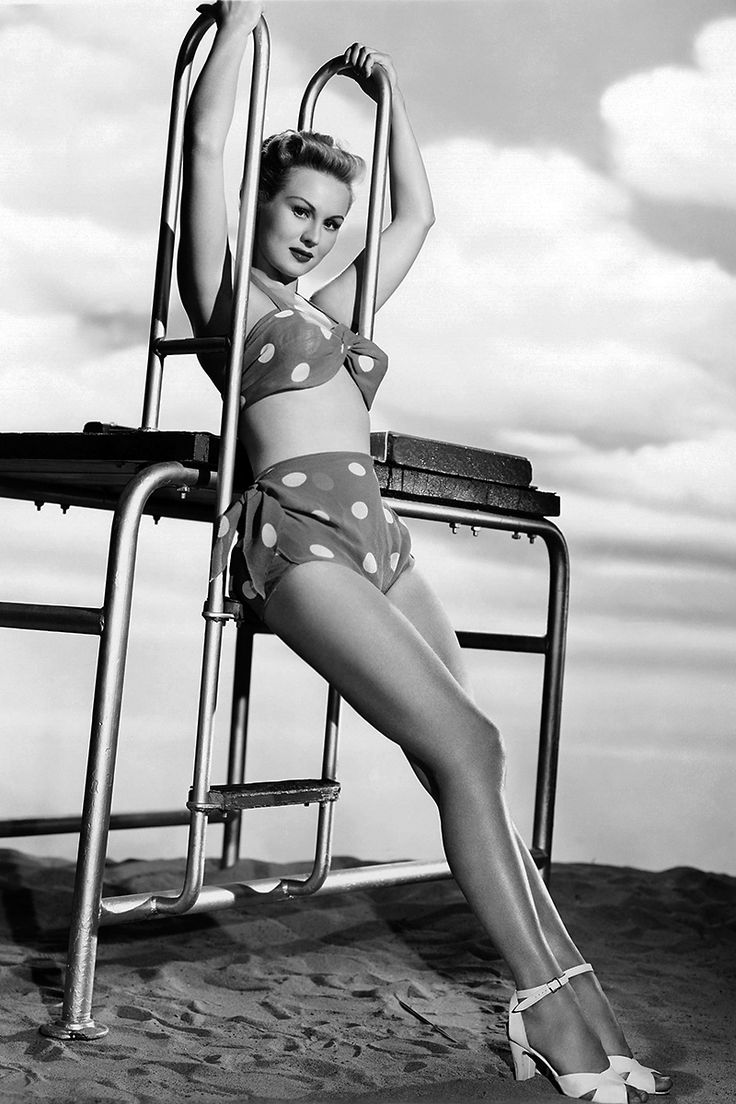



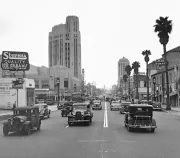
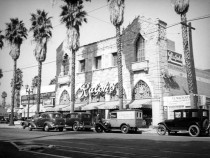


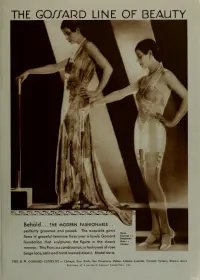

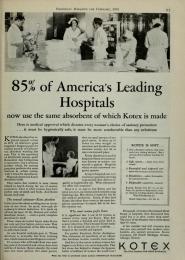

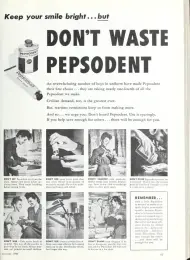


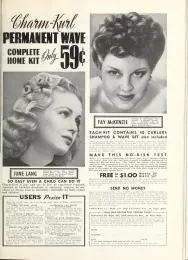





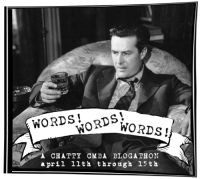

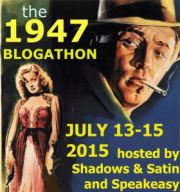
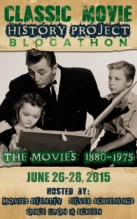
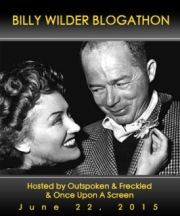


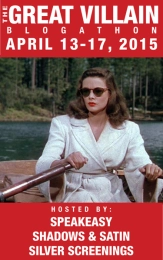


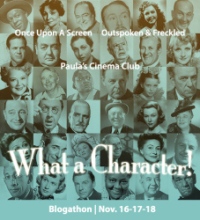
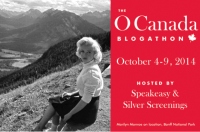


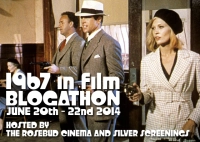


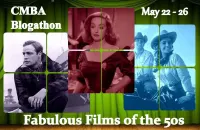
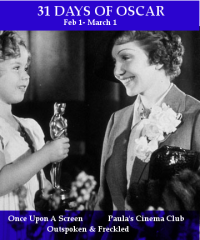
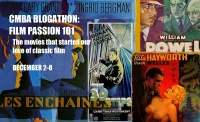







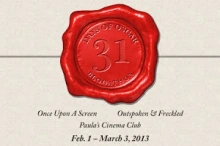

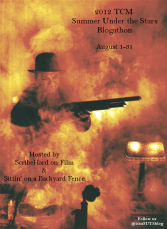


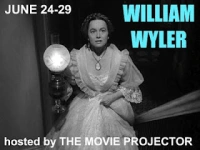





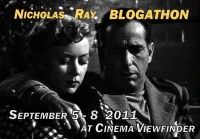

I’ve seen him a lot but didn’t know a thing about him til now, so thank you very much!
Actually one of my subscribers has asked about Steve Cochran a few times and I’ve been disappointed to say I likely wouldn’t be covering him because I’d be starting from scratch–I just emailed them with your link and am sure they’re going to LOVE this!
Thanks so much, Cliff! I hope they were able to pop on by!
What a wild life this man led!
[…] -Karen from Shadows and Satin writes about bad boy Steve Cochran. […]
Hi, I’m visiting from the blogathon…when I saw you were doing Steve Cochran, I just had to stop by. I am often drawn to those “bad boy” kinds of actors, and I think he was one of the best. He was sensational in PRIVATE HELL 36. I reviewed that on my blog about a month ago, and I said that I think that was his show all the way. And the chemistry between him and Ida in that film was amazing.
Anyhow, thanks for highlighting him. I didn’t know much about him.
Hi, Patti — thanks for stopping by! I totally agree about Steve’s performance in Private Hell 36 — I just love him in that!
I really enjoyed this profile, Karen! I haven’t seen much of his work but I was very impressed by him in TOMORROW IS ANOTHER DAY which made me interested to see more. Thanks for the detailed look at his life.
Best wishes,
Laura
Thanks so much, Laura! I hate to post such long articles, but Steve Cochran had so much going on off-screen that I couldn’t leave out anything!
Great profile of a sturdy performer. Ironically, I just watched him in an episode of ROUTE 66 today opposite Kathleen Crowley. He played a bad guy who conspired with two lowlifes to murder Kathleen’s husband.
Thanks so much, Rick — I would love to have seen that episode of Route 66 — it sounds like a good one!
You’ve done such a wonderful job here of covering Cochran’s life,career, his troubles throughout his life. I really didn’t know that much about him, his background or his trials so this was an interesting read.
I hope I get the opportunity to see “Private Hell 36” after your description of it! I’m trying to watch more film noir.
An informative read on another actor who should have gotten better roles in life and perhaps if he had been given a few breaks we could have looked at his career differently.
Page
Thanks, Page — I hope you get to see Private Hell 36 — I know you’ll like it. He’s pretty great in it.
He had an intersting career, though best known for his noir roles, he played in a wide range of pictures from The Desert Song (it was on TCM this weekend, I could only take 5 minutes of it before changing channels) to Antonnionni’s Il Grido (excellent story of a working man wandering the Italian countryside with his small son trying to find work and connect with a woman). A couple of months ago I caught a nifty little Warners noir with Cochran and Ruth Roman as a couple on the lam from the law who eventually settle down as migrant laborers. I think it’s called Tomorrow is another Day. Cochran had a sexy dangerous quality like John Garfield and he was well paired with Ruth Roman in that movie.
Hi, Charles! I don’t think I’ve ever seen Steve Cochran in anything but noir — I will have to keep an eye out for his non-noir performances. Tomorrow is Another Day sounds good, too — I missed that one!
It’s a pleasure to finally read a thoughtful, balanced, and well-written story about Steve Cochran, who seems to be one of the most mystifying and misunderstood actors in film history. I hope your intelligent article prompts people to seek out his work. Maybe Cochran wasn’t perfect, but he possessed true talent and undeniable screen presence. It is indeed tragic that he left us too soon.
Thank you so much for your kind words! When I wrote “Bad Boys,” there were several actors for whom I developed quite a special fondness, based on what I learned about their lives, including Raymond Burr, William Talman — and Steve Cochran. He often had a wild life away from the screen, but he seemed to be more fun-loving than malicious, and he was definitely talented and dedicated to his craft. I’m so pleased that you enjoyed my post, and I greatly appreciate your comments.
Just saw Storm Warning last night on TCM. Steve Cochran gave the strongest performance and I can see why it’ was a favorite of his. His character is really a snivelling, whiny weakling fronting as a tough guy.
I think his performance in Storm Warning was definitely one of his best! And I think it shows that Steve Cochran was a lot more versatile and talented than he probably received credit for.
I remember Steve Cochran, almost fifty years ago, when he was filming in Nassau. My father, brother, and I were among onlookers at the scene of an accident in the film. Steve lived in a house off Mackey Street, and we went to see him a few times. He seemed a quiet, nice person. Steve gave me an 8.5 x 11 black and white photo of himself. I thought that was very kind. I have not seen a single movie of his. But tonight I just decided to google his name and found the name of that film (which I thought he called island in the sun) tell me in the sunlight. My father, who seemed to know him well, was very sad and told me of Steve’s passing not long after he’d left Nassau.
What an awesome encounter, Sylvia. Thank you so much for sharing it here. I hope you still have the photo Mr. Cochran gave you — it’s a treasure!
Steve had a daughter with his first wife, the California portrait artist, Florence Lockwood. They met early on. I get confused a bit because I have a photo of Steve and Florence in Carmel in the year 1935. They met while working together at the Monterey Theater. I even have photos of Steve on stage. Steve Cochran was the grandfather of my lover, Alex, who, like Steve, was remarkable handsome, like brothers. Alex was also truly talented and died far too young in 2010. A few months later, Alex’s mother, Xandria, also died too young. She was a great beauty. Clearly the daughter of Steve Cochran. Genetics. I love what you have done here.
Thank you so much for sharing this! I wasn’t able to find out anything much about his first two marriages — I appreciate you filling in the blanks with your personal connection — and I’m sorry to read about Alex.
Thank you so much for your comment and for your amazing work. Thank you.
I wrote you a reply, not sure you received it. This note from you is heart warming and gentle and greatly appreciated. Thank you.
I did receive it — and thank you so much. You are very kind.
Reblogged this on PLANET LOBSTER.
Excellent overview on this actor. His performamce in WHITE HEAT is one of the highlights in that outstanding film. Saw him in an episode of “Burke’s Law” which was right around the time of his tragic death.
Thank you so much, Tony — I totally agree with you about Steve Cochran in White Heat. He was a standout!
For many years I have noticed this amazingly handsome actor in different films and wondered who he was. I would watch the credits…but never got his name. Tonight I saw ” The Best Years of Our Lives” and noted his character was named Cliff and got his name. I enjoyed reading about his life and the other movies he made. Thank you for posting this. My God…he was so good looking!
Lora Lavis
Thanks so much for your comment, Lora — I didn’t even remember that Steve Cochran was in ‘The Best Years of Our Lives’! He sure was a looker, wasn’t he?
[…] wrote Gone Too Soon: Steve Cochran almost two years ago, so I’m always surprised to see that people are still reading it. (And I […]
I’m checking out Steve Cochran info now because I just watched him in an episode of “Route 66” last night and for his appearance in an episode of “Naked City”.
The article could mention that The Cry- Il Grido is one of the early titles of Michelangelo Antonioni, one of Italy’s master directors (L’Avventura, The Eclipse, La Notte, Blow Up, Zabriskie Point, The Passenger etc), and that it also starred black-listed Betsy Blair (ex-Ms. Gene Kelly).
Thanks, Fabiano — now I don’t have to. You just did! 🙂
This is a very nice write-up. I loved his performance as a U.S. Deputy Marshal on Zane Grey Theatre. Yes, he had quiet talent filled with zinging one~liners (the man was good at those) -that gave credence to more than meets the eye. He is missed, not only for what he did, but also for the promise of better to come. .
Thank you so much for your comment! I have a special place in my heart for Steve Cochran — I wish I could have known him. He seems like he was quite a guy — or “something else,” as my mom would say!
I’m reading this as a 70 year old in Scotland, with memories that Steve Cochran was my grandmother’s favourite actor, and whilst watching “White Heat” on TCM. He must have had Scottish ancestry, as Cochran is a Scottish name. My goodness he was handsome, no wonder women adored him.
Thank you so much for your comment, Ann — your grandmother had mighty good taste! 🙂
I just finished watching him in an episode of Twilight Zone, “What You Need”.
I thought he was a total hunk….a little dangerous but oh so good looking. He also was very hung.
I remember that episode well, Chuck — as always, Cochran was great!
I enjoyed reading this
i loved this actor He was so handsome. Tried to see his daughter but their are no pictures of her at all. He was terrific in the damm don’t cry. Tonight I am going to watch tomorrow is another day.
He was so good The Damned Don’t Cry, wasn’t he? And White Heat, too. I’ve never seen Tomorrow is Another Day — is it good?
very good picture.
[…] darn great. In addition to featuring Joanie in an awesome rags to riches role, the film also stars Steve Cochran as one of the sexiest gangsters you’re ever likely to encounter, David Brian as a refined but […]